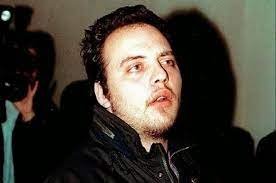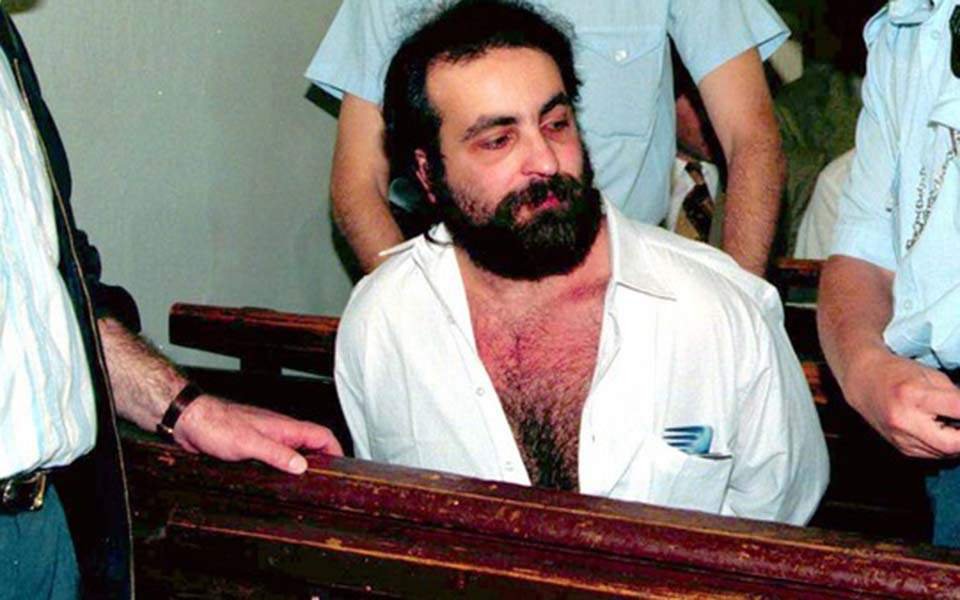In Greece, a country rich in history and beauty, some crimes have shocked the public with their sheer brutality. This article delves into the most twisted and shocking crimes in Greece, revealing tales of murder that go beyond the ordinary in their horror. From the depths of human depravity, these stories emerge, casting a shadow over the picturesque landscapes of Greece.
Join us as we explore these dark narratives, where each crime unveils a chilling layer of the human psyche.
Babis Anagnostopoulos
A killer who masterfully misled the country for months

On the morning of May 11, 2021, in a suburb near Athens, a story unfolded that would shock Greece and capture international attention. Babis Anagnostopoulos, a UK-trained pilot, stood accused of the murder of his British wife, Caroline Crouch, in a twisted tale of lies, deceit, and murder.
Caroline Crouch, only 20 years old, was found dead in her bed by police officers responding to a call made by her husband. Initially, Anagnostopoulos spun a tale of horror, blaming armed robbers for the murder and the killing of their family dog. He claimed that Caroline, skilled in martial arts, fought back when the robbers threatened their baby, leading to her death by suffocation.
However, the investigation revealed inconsistencies. Digital evidence from the couple’s devices contradicted Anagnostopoulos’s timeline. Caroline’s biometric watch showed her heart stopped beating hours before the alleged robbery, and the camera’s memory card had been removed earlier than claimed.
On June 17, Anagnostopoulos was brought in for questioning during Caroline’s memorial service. Under interrogation, he confessed to murdering Caroline, citing frequent frictions between them as the cause. He attempted to divert the investigation by fabricating the robbery story, not wanting their 11-month-old child to grow up without parents.
Anagnostopoulos was found guilty of murder, animal cruelty, false reporting, and false testimony. He was sentenced to life imprisonment and an additional 10 years for the killing of the family dog, plus a fine.
The case, due to Crouch’s British background, attracted significant international media coverage, including major British newspapers and television networks. It was also featured in the documentary “Caroline: The Murder That Fooled the World,” aired by the British television channel, Channel 5.
Antonis Daglis
“The Athens Ripper” and His Gruesome Reign of Terror
In the dark corners of Athens, between 1992 and 1995, a sinister figure lurked, preying on the vulnerable. Antonis Daglis, a truck driver, embarked on a murderous spree that would earn him the grim moniker of “The Athens Ripper.” His victims were primarily prostitutes, and his crimes were marked by extreme brutality.

Daglis, who had been a repeat juvenile offender since the age of 14, harboured a deep-seated hatred for prostitutes, a sentiment stemming from his mother’s profession, as he later claimed. His criminal record included a charge of seducing a minor in 1988 and an arrest for attacking a group of men with a knife in 1989.
The chilling saga of Daglis came to light after his arrest for the rape and abduction of a British woman named Ann Hamson. Following his capture, Daglis confessed to the rape, strangulation, and dismemberment of two women, Eleni Panagiotopoulou, 29, and Athina Lazarou, 26. He also admitted to the attempted murder of six others and robbing all eight victims. He later confessed to a previously unsolved murder of a prostitute, whose dismembered body was found in a dumpster in 1992.
During his trial, Daglis revealed his deep hatred for prostitutes, stating, “I hated all prostitutes and continue to hate them. I went to meet them for sex but suddenly other pictures came into my head. I heard voices which ordered me to kill.” He even admitted to contemplating strangling his fiancée but restrained himself.
On 2 August 1997, Daglis was found dead in his cell, along with his cellmate G. Makridis, in an apparent suicide pact. He had been sentenced to thirteen terms of life imprisonment plus 25 years for his heinous crimes. His death marked the end of a reign of terror that had cast a long, dark shadow over Athens.
Manolis Douris
Unmasking the Monster: A Father’s Face of Deception and Terror
New Year’s Eve, 1993, in Ermioni, Greece, marked the beginning of a horrifying saga. Six-year-old Nikos Douris vanished, sparking a nationwide search. His father, Manolis Douris, and mother were distraught, pleading for help on national television. Manolis, in particular, seemed shattered, vowing vengeance on the perpetrator.
But soon, the narrative took a sinister turn. The discovery of young Nikos’s body unveiled a gruesome truth. The child had been suffocated and sexually abused. Suspicion swirled around Manolis Douris. His inconsolable facade on TV didn’t fool the seasoned investigators. Contradictions in his statements raised red flags.

Under pressure, Manolis Douris confessed. His defense? A claimed ‘rare disease’ that supposedly caused seizures and impaired his judgment. “Everyone in my position could have done the same,” he argued, a statement that only fueled public outrage.
The nation’s sympathy turned into fury. Calls for severe punishment echoed across Greece. In court, Douris faced the consequences of his actions. He received a life sentence for premeditated murder.
Douris’s notoriety trailed him into prison. Initially headed for Trikala, he was rejected by fellow inmates. Even in Corfu’s prison, isolated from others, he remained an outcast. His transfers between prisons emphasized the depth of his infamy.
Two years after the tragedy, Manolis Douris ended his life. using a TV cable to hang himself in his cell. His death marked a bleak end to a case that had gripped and horrified the Greek nation.
Theofilos Sechidis
Thasos’ Darkest Days
In May 1996, Theofilos Sechidis, a 24-year-old Greek law student, committed a series of horrifying murders that shocked the nation. Over five days, Sechidis brutally murdered his family members on the northeastern Aegean island of Thasos. His victims included his parents, sister, grandmother, and an uncle.

Sechidis’s method of murder was particularly gruesome. He murdered each family member separately, dismembering their bodies and placing the remains in black plastic garbage bags. These remains were then discarded in a garbage dump, adding a macabre dimension to the already shocking crimes.
During his trial, Sechidis made a startling claim: he believed his family members were conspiring against him. Consequently, he argued that his actions were in self-defence. This assertion suggests a deeper issue, potentially pointing to an underlying mental health condition. However, specific details about his mental state or any formal diagnoses were notably absent in the sources.
On June 20, 1997, Sechidis was found guilty of five counts of murder and was sentenced to life in prison. His time in prison, however, was short-lived. Sechidis was found dead in the shower of Korydallos prison’s psychiatric ward at the age of 46, under circumstances that suggest a solitary and mysterious end to his life.
The case of Theofilos Sechidis remains a dark chapter in Greek criminal history. Sechidis story, highlights the tragic consequences of untreated mental illness and the devastating impact of such crimes on communities and families.
Dimitris Vakrinos
The Serial Killer Taxi Driver
Dimitris Vakrinos, born in 1962 in Pirris, Arcadia, Greece, emerged as one of the country’s most feared serial killers. His life, marred by a troubled childhood and abuse at the hands of his alcoholic father, spiraled into a series of horrific crimes that terrorized Athens from 1987 to 1996.
Vakrinos, initially a welder, later became a taxi driver. His first recorded crime was in 1987, the murder of Panayiotis Gaglias, over a stolen shotgun. Vakrinos’ modus operandi involved using his taxi to lure victims, and then attacking them in secluded areas. His victims included Anastasia Simitzi, whom he burned alive in 1993, and Theodoros Andreadis, a fellow taxi driver, shot dead in 1994. He also murdered the Spyropoulos brothers, Kostas and Antonis, in 1995, over a car sale dispute.

Vakrinos, a man tormented by sexual repression and crippling low self-esteem, struggled deeply. Compensating for his small stature, he spiraled into violence. Each perceived insult ignited a lethal response.
In April 1997, authorities finally apprehended him. Consequently, he was confined in Korydallos Prison. Then, on May 12, 1997, a shocking discovery: Vakrinos was found lifeless, hanging from shoelaces attached to a showerhead in his cell. This tragic end halted his horrifying spree.
As the sun dips below the horizon, casting shadows over these chilling narratives, we find ourselves deep in thought. These tales, steeped in horror, compel us to reflect on the enigmatic nature of the human psyche. Intriguingly, the true terror in these stories doesn’t stem from mythical beasts or ancient deities. Instead, it’s rooted in the actions of seemingly ordinary individuals. These are the people we might casually brush past during our daily commute or briefly meet at the neighborhood bus stop.
Talking about disturbing crimes have you heard about Disturbing Crimes Committed By People Dressed as a Clown?

